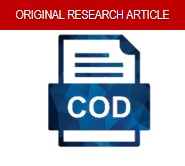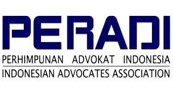Legal Remedies for Resolving Land Disputes under Indonesia’s Positive Law
An Evaluation of Effectiveness and Justice
DOI:
https://doi.org/10.46924/jihk.v7i1.306Keywords:
Customary Rights, Land Disputes, Litigation, Non-Litigation, Positive LawAbstract
Land disputes in Indonesia represent a complex structural issue, shaped by overlapping legal frameworks, weak administrative systems, and the limited recognition of indigenous peoples’ rights. This study aims to analyze the mechanisms for resolving land disputes based on positive law, identify key obstacles to their implementation, and evaluate their effectiveness in ensuring both legal certainty and substantive justice. Employing a normative legal approach and qualitative-descriptive analysis, the study draws on legal texts, court decisions, and relevant academic literature. The findings indicate that although positive law offers a formal framework for dispute resolution, its practical effectiveness is constrained by bureaucratic inefficiencies, unequal access to justice, and the marginalization of customary law. In contrast, alternative mechanisms—such as mediation and customary law-based processes—have demonstrated greater adaptability to local contexts and socio-cultural realities. The study concludes that an integrative approach, combining the normative structure of positive law with non-litigation mechanisms rooted in local values, is essential for developing an effective and equitable land dispute resolution system in Indonesia.
Downloads
References
Journals
Anggita, Anggita. “Penyelesaian Sengketa Konflik Kepemilikan Tanah Dengan Pendekatan Litigasi Di Pengadilan Tata Usaha Negara.” Savana: Indonesian Journal of Natural Resources and Environmental Law 1, no. 1 (2024): 24–38. https://doi.org/10.25134/savana.v1i01.30.
Anggriawan, Rianedo, Augie Pratama Wijaya, Akiruddin Ahmad, Syafil Warman, and Ismed Batubara. “Upaya Pemerintah Dalam Penataan Hukum Terhadap Sengketa Kepemilikan Tanah Di Indonesia.” Future Academia: The Journal of Multidisciplinary Research on Scientific and Advanced 2, no. 4 (2024): 838–846. https://doi.org/10.61579/future.v2i4.215.
Boboy, Juwita Tarochi, Budi Santoso, and Irawati Irawati. “Penyelesaian Sengketa Pertanahan Melalui Mediasi Berdasarkan Teori Dean G.Pruitt Dan Jeffrey Z. Rubin.” Notarius 13, no. 2 (2020): 803–18. https://doi.org/10.14710/nts.v13i2.31168.
Kumara, I Made Citra Gada, I Ketut Kasta Arya Wijaya, and Luh Putu Suryani. “Kepastian Hukum Pemegang Hak Atas Tanah Dalam Sistem Hukum Pertanahan Di Indonesia.” Jurnal Preferensi Hukum 2, no. 3 (2021): 560–63. https://doi.org/10.22225/jph.2.3.4013.560-563.
Lestari, Rika, and Djoko Sukisno. “Kajian Hak Ulayat Di Kabupaten Kampar Dalam Perspektif Peraturan Perundang-Undangan Dan Hukum Adat.” Jurnal Hukum Ius Quia Iustum 28, no. 1 (2021): 94–114. https://doi.org/10.20885/iustum.vol28.iss1.art5.
Matheus, Juan. “E-Arbitration: Digitization of Business Dispute Resolution Pada Sektor E-Commerce Dalam Menyongsong Era Industri 4.0 Di Tengah Pandemi Covid-19.” Lex Renaissance 6, no. 4 (2021): 692–704. https://doi.org/10.20885/JLR.vol6.iss4.art4.
Meiranda, Ayu, Syamsunasir, Achmed Sukendro, and Pujo Widodo. “Upaya Hukum Terhadap Penyelesaian Sengketa Tanah Ulayat Di Kabupaten Kampar Guna Menjaga Keamanan Nasional.” Jurnal Analisis Hukum 6, no. 1 (2023): 99–114. https://doi.org/10.38043/jah.v6i1.4232.
Myaskur, Myaskur, and Tri Wahyudiono. “Aspek Hukum Penyelesaian Sengketa Tanah Adat.” Islamic Law: Jurnal Siyasah 9, no. 2 (2024): 97–110. https://doi.org/10.53429/iljs.v9i1.593.
Pramesti, Nita Andinia Tri, and Nazwa Rizqita Rahmadani. “Jalur Alternatif Sebagai Penyelesaian Sengketa Tanah.” Jurnal Ilmiah Multidisiplin Ilmu 1, no. 4 (2024): 49–52. https://doi.org/10.69714/cpw8t016.
Riyadi, Bambang Sugeng, Holijah Holijah, and Mulyadi Tanzili. “Mediation Challenges in Civil Dispute Resolution A Case Study of Civil Case Number 72/Pdt.Plg/2023 at the Palembang District Court.” Jurnal Ilmu Hukum Kyadiren 6, no. 2 (2025): 197–210. https://doi.org/10.46924/jihk.v6i2.250.
Sukmawati, Putu Diva. “Hukum Agraria Dalam Penyelesaian Sengketa Tanah Di Indonesia.” Jurnal Ilmu Hukum Sui Generis 2, no. 2 (2022): 89–102. https://doi.org/10.23887/jih.v2i2.1015.
Susanti, Zulfina. “Penyelesaian Sengketa Hak Atas Tanah.” Wasaka Hukum: Jendela Informasi Dan Gagasan Hukum 11, no. 2 (2023): 35–45. https://ojs.stihsa-bjm.ac.id/index.php/wasaka/article/view/93.
Wulandari, Ratna, Dwi Arina Fahrun Nisa, Ulil Farrohah, and Santi Rima Melati. “Mekanisme Penyelesaian Sengketa Tanah Perbuatan Melawan Hukum (PMH) Melalui Peradilan Adat Dan Jalur Hukum Positif.” Jurnal Sains Student Research 2, no. 6 (2024): 132–45. https://doi.org/10.61722/jssr.v2i6.2944.
Books
Abdurrasyid, Priyatna. Arbitrase Dan Alternatif Penyelesaian Sengketa: Suatu Pengantar. Jakarta: Fikahati Aneska, 2002.
Harahap, Muhammad Yahya. Hukum Acara Perdata: Tentang Gugatan, Persidangan, Penyitaan, Pembuktian, Dan Putusan Pengadilan. Jakarta: Sinar Grafika, 2016.
Soekanto, Soerjono. Hukum Adat Indonesia. Jakarta: PT Raja Grafindo Persada., 2013.
Sumardjono, Maria S.W. Tanah: Dalam Perspektif Hak Ekonomi Sosial Dan Budaya. 1st ed. Jakarta: Yayasan Obor Indonesia, 2008.
Downloads
Published
Issue
Section
License
Copyright (c) 2025 Fransiskus Rifandy Moa, Gunawan Djajaputra

This work is licensed under a Creative Commons Attribution 4.0 International License.
Authors who publish with this journal agree to the following terms:
- Copyright on any article is retained by the author(s).
- The author grants the journal, the right of first publication with the work simultaneously licensed under a Creative Commons Attribution License that allows others to share the work with an acknowledgment of the work’s authorship and initial publication in this journal.
- Authors are able to enter into separate, additional contractual arrangements for the non-exclusive distribution of the journal’s published version of the work (e.g., post it to an institutional repository or publish it in a book), with an acknowledgment of its initial publication in this journal.
- Authors are permitted and encouraged to post their work online (e.g., in institutional repositories or on their website) prior to and during the submission process, as it can lead to productive exchanges, as well as earlier and greater citation of published work.
- The article and any associated published material is distributed under the Creative Commons Attribution 4.0 International License



 Sinta ID:
Sinta ID: 


















